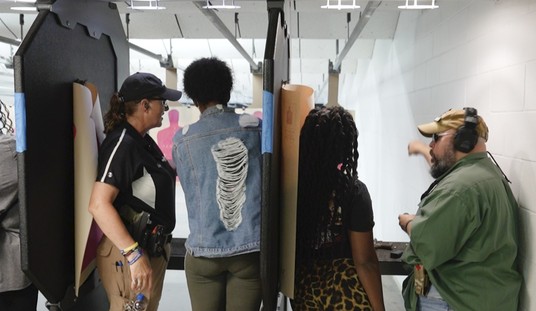As we watch our present Congress stumble forward in enacting its insane agenda, we observe as they achieve the never before seen 11% approval rating from the American electorate.
That is, by the way, the lowest percentage since approval ratings of the U.S. Congress were first taken.
Basically, we don’t want them to do what they are doing, but they decided to do it anyway. It makes one wonder when the point of Congress, i.e., to reflect the will of the people, changed into what it is now, i.e., that they just do what they want to do, the people be damned. One wonders when this changed; when was the last Congress that acted according to the will of the people?
If there was one, I am determined to find it. In the meantime, I am also wondering if even in the 18th Century, of the three co-equal branches of government created by our brilliant Founders, that Congress was the unloved and unlovely stepchild of the triumvirate. There was a clear lack of devotion on the part of the citizenry for this institution which was perhaps a holdover from the very unpopular Congress under the Articles of Confederation, but even the newly constituted Congressional body failed to inspire the people of its new nation. To have a uniform decision made by these 91 individuals in the 18th Century, 26 in the Senate and 65 in the House, with largely disparate opinions was problematic then, and now that we have 535 members of our Congress, the situation is even more fraught. This is especially true when each one of these 535 elected representatives has an ego the size of Mt. Rushmore.
This particular character trait seems to have become a prerequisite to be a member of the House or Senate.
Members of Congress are meant to be the national representatives closest to the American citizen, as they achieved their office as a direct result of being elected by the people, and are meant to remain in the closest touch with the electorate in order that our legislative branch continues in its mandate to obtain and maintain the consent of the governed.
At least that’s the way it was supposed to be.
The activities of our first Congress were duly recorded, and in many different ways. One of the most entertaining of these was the 18th Century journal of a member of the U.S. Senate from Pennsylvania, William Maclay, who was, by all accounts, a thoroughly disagreeable individual. In his diary, he groused his way through debates in Congress, dinners with President Washington and negotiations with his political friends and foes alike. Though he started his (thankfully short) political career thoroughly in the Federalist camp, he later joined the opposition, eventually becoming as relentless in his criticism of the Federalists as he had been of the other party. Maclay seemed to have held a particular personal disregard for President Washington, and provided numerous descriptions of George Washington’s failures in social settings, in the exercise of his office, and in the demonstration of his political leadership The Senator provided a detailed description of all this in relating a particular Congressional session in the summer of 1789.
As President Washington was determined to adhere to the rulebook in running the new country, he felt it his duty to attend a session of the U.S. Senate in which a treaty involving certain Indian tribes was to be debated. This would have been the first time the American President would have exercised the mandated imperative to seek the advice and consent of the U.S. Senate in the confirmation of a treaty. This involved a most pressing issue of the day, and President Washington settled in in the Senate chamber for a cogent debate on the issue.
Debate started, and on a very warm and uncomfortable August afternoon. After a short time, a member of the Senate interrupted the discussion to formally request that all the windows be opened, to try to alleviate the unpleasant effects of the stifling chamber. Debate resumed, only to be interrupted once again by another formal request, this time to close all the windows as the noise from the carriage traffic outside the chambers was making it too difficult to hear anything. This task was completed successfully, and debate started once again. Then yet another member of the Senate interrupted to request that a minor and particularly insignificant point mentioned in the treaty be discussed in more detail, followed by another of the same, followed by another of the same.
President Washington decided that he had had enough. A naturally serious man who was known to have possessed ‘the gift of silence,’ there was nothing he took more seriously that the effective operation of his new country. He was completely intolerant of the useless blather he had just wasted his time listening to. He thus rose with all his great dignity and left the Senate chamber, saying ‘that was the last damned time’ he was ever going to do anything like that. Thus, Washington’s excursion to the Senate in 1789 for such a debate was the first, last and only time that a President of the United States traveled to the Senate chamber to oversee the process of the advice and consent of the Senate when it was required. Ever since, the President and his diplomatic representatives have negotiated treaties and then laid them before the Senate for their approval
Has Congress changed since 1789?
Well, I think it can be said with total accuracy that the U.S. Congress of 2010 is even more unloved and unlovely than the Congress with which George Washington dealt. Congress has always been known by the characters in its midst, such as the great Henry Clay, Daniel Webster and John C. Calhoun; the outrageous “Fighting Bob” La Follete; the influential Nicholas Longworth and Joseph Cannon and the universally well-regarded Daniel Patrick Moynihan and Tip O’Neill. Today, our Congressional characters are renowned less for their greatness, humor and eccentricity, and more for their extremism. This Congress is led by two of the more unfortunate leaders the House and Senate have ever had, Nancy Pelosi in the House and Harry Reid in the Senate. They have individually and together demonstrated an unforeseen level of contempt for the American people, both in their political and legislative acts. Neither one has demonstrated the slightest comprehension of the Constitutionally defined purpose of the legislative body they lead, instead treating the House and Senate as forums through which to exercise a near tyrannical rule of the American people. It can be said that this perhaps worst Congress in history has done whatever it wanted to do to implement an agenda of its own, one most definitely not shared by the American people.
This Congress, under Pelosi and Reid, has completely abrogated its responsibility to lead and legislate only through the consent of the governed.
And this is on the heels of a Republican-led Congress, who had promised smaller government, lower taxes and more individual freedom. That they did the opposite led to enough Republican losses in 2006 to give us the Democrat-led Congress we have today. It is true that both Congresses failed in their promises to the American people, though what we’re living under now has not just failed, but has done so in the most spectacular fashion in Congressional history.
Whether one or the other, personally, I much prefer a Congress bickering over whether to open or close the windows.
The current Congress is unusual also in that it has rarely-seen majorities in both the House and Senate, leaving the minority party virtually unable to block anything with which it (and the majority of the American people) did not agree. To add to the almost unforeseen amount of power with which this Congress has been instilled, the President is of the same party, and as his entire Administration shares the extreme left views of Obama and the existing Congressional leaders, a virtual monopoly of this outdated political philosophy has been created in our nation’s Capital.
What we are seeing now is exactly what the Founders were afraid of, (one of the many things they anticipated and hoped they had dealt with), and thus, these brilliant men built into the system a stringent series of checks and balances in order to keep from happening exactly what is now happening – a raw and unchecked abuse of power, as demonstrated in everything this Congress has done.
It clearly never occurred to our Founders that our elected leaders would simply ignore the Constitution, the rulebook by which our nation is to operate, in their relentless pursuit of political power. Thus, as has happened to other Congresses in our over than 220 year history, the members thereof and their leaders, will be taught a lesson as to why they are there, supposedly, doing the peoples’ business. They are there because we, the people, elected them to serve in these, supposedly, honorable positions, the operative word here being ‘serve.’ That is the way our government is meant to work, and how it will work again in the near future.
That is yet another demonstration of the brilliance of our Founders in their creation of this nation. In our founding documents, these great men put the ultimate power of the United States of America in its people, in whom they placed the greatest trust. Thanks to the path set by our Founders, this power will be exercised in November, and those who are in desperate need of a lesson in Constitutional history will be taught the most basic one of all: ultimately, it is the people are sovereign in this nation, not those they make the occasional mistake in electing.
We as Americans have certainly been guilty on occasion of placing our trust in the wrong person in leading and/or guiding us and our nation, as we can observe in our most recent Congresses. Thanks to our Founders, however, we have also been provided with the opportunity – if we take it – not only to make things right, but to actually undo the damage done by those who betrayed that trust.








Join the conversation as a VIP Member